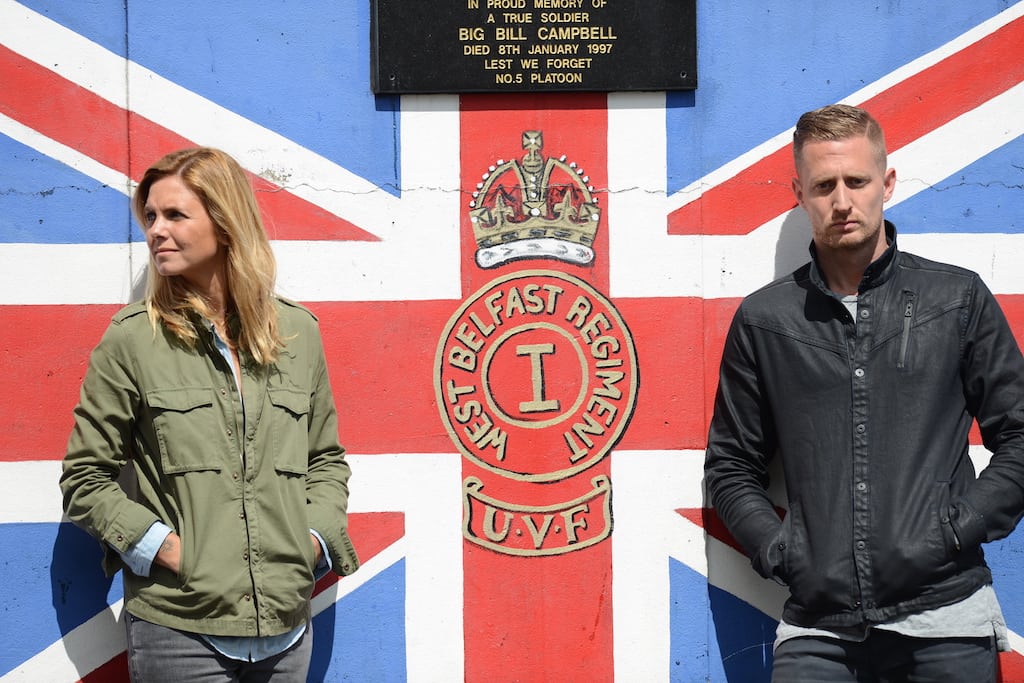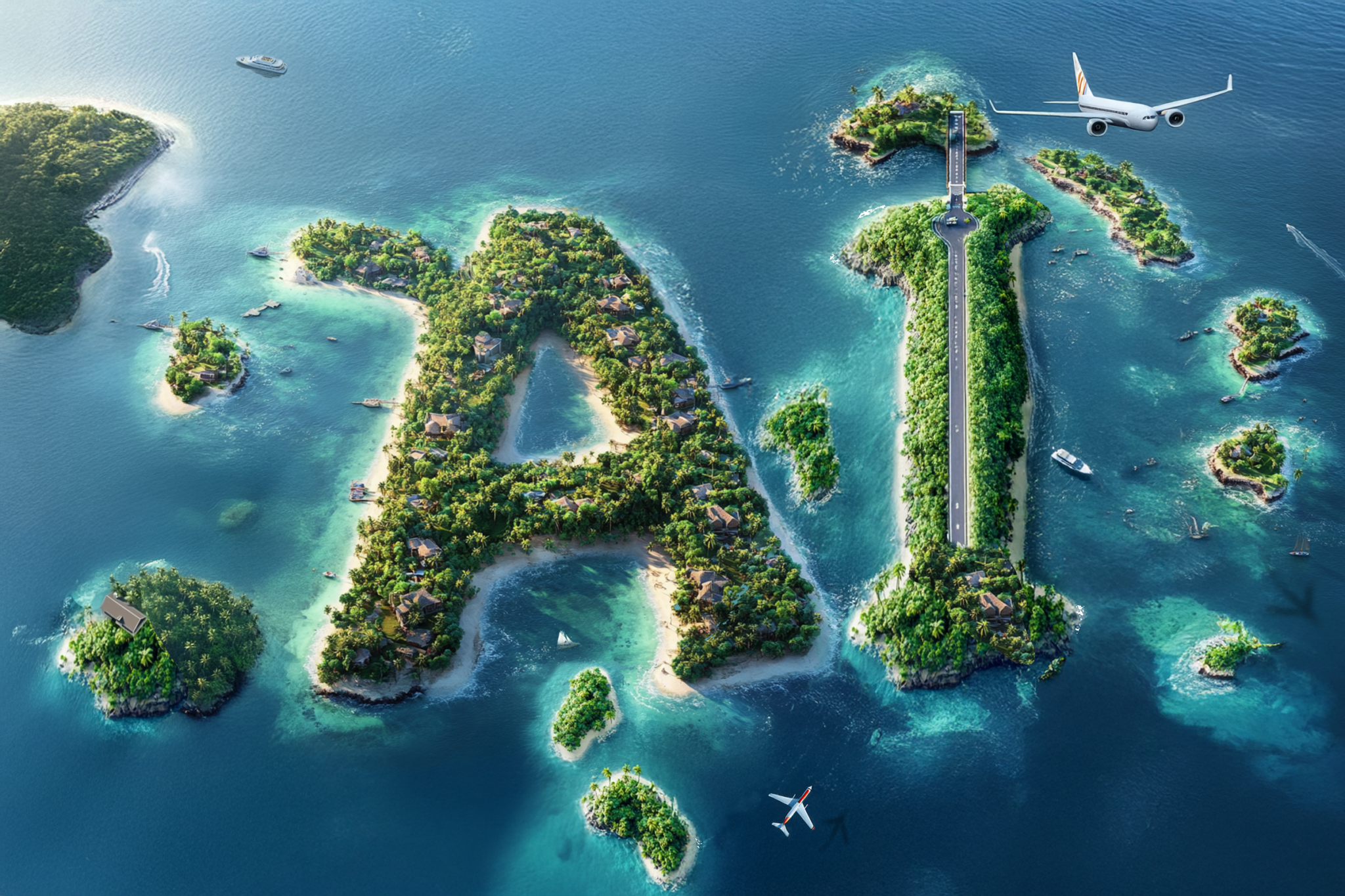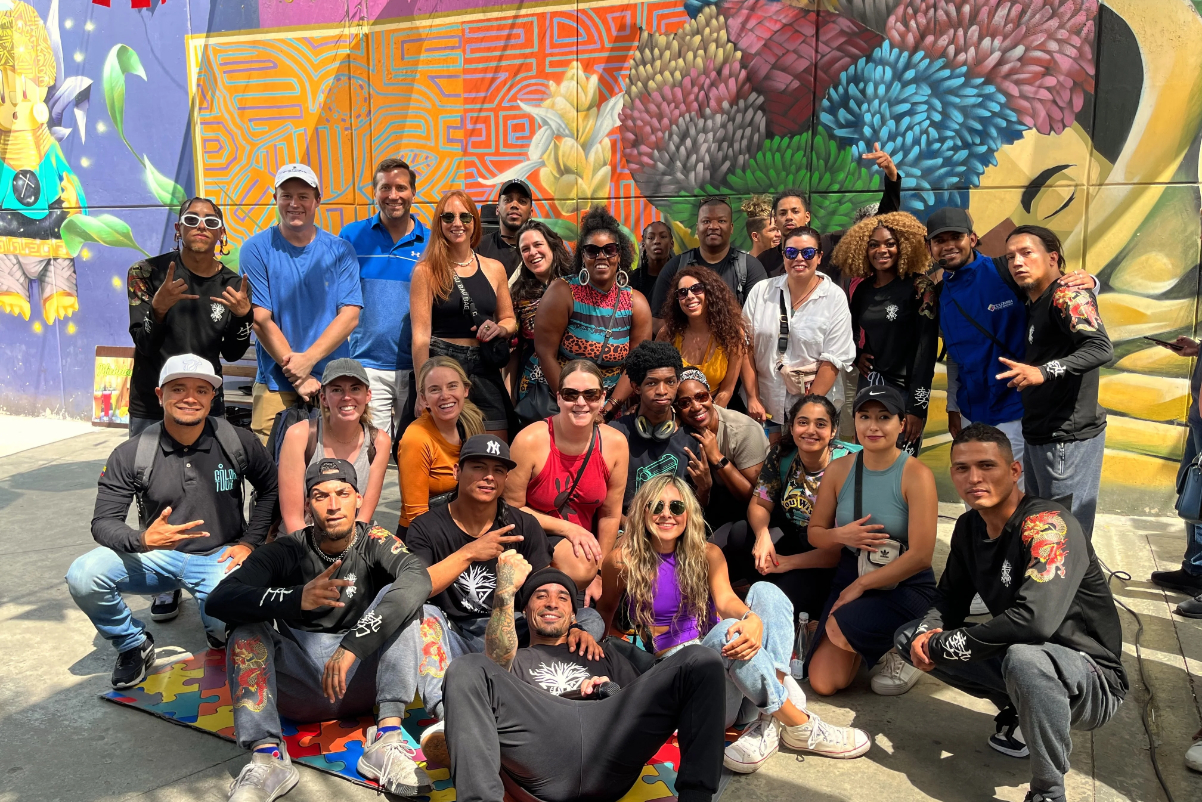Travel Channel Bets on Substance With New Food and Politics Series

Skift Take
Travel Channel is undergoing somewhat of transformation with new leadership and new programming aimed at building an audience by producing higher quality content.
What may be one of its most successful new shows is Breaking Borders, which follows journalist Mariana van Zeller and chef Michael Voltaggio to destinations better known for conflicts than tourist attractions. In destinations such as Northern Ireland, Israel and Palestine, Rwanda, and Sri Lanka, the duo interviews locals from opposing sides of an issue and then sits down with them all together at a meal homemade by Voltaggio. The meal reflects local cuisine and often takes place in a stunning setting such as an empty restaurant overlooking the pyramids of Egypt.
Travel Channel actually purchased the concept of the show from a Norwegian journalist who created a very successful series called Dining with the Enemy that aired in Norway.
Skift recently sat down with hosts van Zeller and Voltaggio to discuss the upcoming series, how it compares to other travel content, and the reality of traveling to the places they visit in the show. An edited version of the conversation can be read below:
Skift: There have not been many breakout travel programs that reach a wider audience. How do you plan to stand out?
Mariana van Zeller: Our show is travel with a meaning, which is ultimately what everybody wants. As a journalist, I usually have a goal when I’m traveling but this show takes it to a new level. I’m used to interviewing one side and then interviewing the other side to hear their view point. Here is an incredible opportunity to gather all sides at a dinner table to experience this amazing food that Michael cooks and get everybody to have a conversation about the conflict and how it’s affected their lives.
Michael Voltaggio: It’s better, different, because it’s not just a travelogue. Each episode is like a mini documentary, not just on the places that we’re going to but the people that are there and the things that they’ve experienced. Obviously this show is more closely related to the conflicts that have happened in these different places. We hit the ground, we interview each guest along the way, we have different food and experiences. It all comes together at the dinner table so there’s a takeaway from this show. The takeaway is not to just sit on the other end of the TV and be envious that you’re not there. There’s a story behind it and there’s a bigger purpose for us being there than just sightseeing.
van Zeller: Ultimately, what we’re showing people through these trips is that you can find beauty even in these confict zones. One of our goals in every single show is to show people the travel opportunities present even in places that show up in headlines every day because of conflict.
Skift: Would you encourage people can travel to these places?
van Zeller: We’re not going to the front lines of conflict zones. We’re not going to Afghanistan or places where the current situation is incredibly dangerous. We are going to places where people’s lives have or are being affected by conflict.
Skift: Is the goal of the show to educate, entertain, enlighten?
van Zeller: We say that the show is a little bit like giving people broccoli — because we’re trying to educate people and give them something that they can take away from watching this one hour of TV— but it’s broccoli with cheese — because we like to make it entertaining and compelling. We want people to enjoy the experience of watching it but also know that when they leave, they’re taking something with them.
Voltaggio: The goal is to inspire a conversation that goes past the dinner table. It becomes much bigger than that. We recently experienced it when watching the show with friends and family. People don’t really care about us; they care about the conflicts and the stories that they’re hearing. They were all having their own conversations after the show. That, for me, is us achieving our goal.
Skift: Do you think that a travel audience is going to be interested in this heavier content?
van Zeller: What is the ultimate goal when you travel? It’s learning and discovering and exploring the world we live in. We do that in a very complete way. We’re really showing people that the world is more than huge resorts and nice beaches. There are these places that travelers wouldn’t usually go to but there is an opportunity to travel there. Most importantly, there is an incredible opportunity to meet these strong, brave and inspiring people and that we all have so much to learn from them.
Skift: Are the people that you spoke with excited about tourism growth?
Voltaggio: These countries need tourism and it’s a huge part of how people are affected by these conflicts. Their economy suffers since a lot of these places were once bustling with tourists.
van Zeller: We had dinner at this restaurant that overlooks the pyramid. Because of all the changes in regime in the past few years and the decline in tourism, the restaurant was no longer in operation when we got there. Michael essentially had to cook a meal at a restaurant where there were cobwebs and no stove.
But it was this beautiful terrace overlooking the pyramids. The owner told us that his hope was by peopling seeing the show and us coming to places like this that they could cement the tourism industry and places like his could start again.
Skift: Let’s talk about the food. What role does food play in each episode and fostering the conversation?
Voltaggio: Every single episode, I try to do as much research in the short time I have leading up to the dinner. There are usually two or three days before we sit down with the guests that we spend interviewing them individually. That’s also what’s happening with the food. In my mind, I’m interviewing ingredients, techniques, and restaurants. It too comes together at the dinner table.
It would be easy for me to show up and cook the food from my restaurant, but I embrace the challenge and opportunity to learn more about the food in these different parts of the world and show my experiences there on the plate. I cook the food inspired by the trip that I just had.




